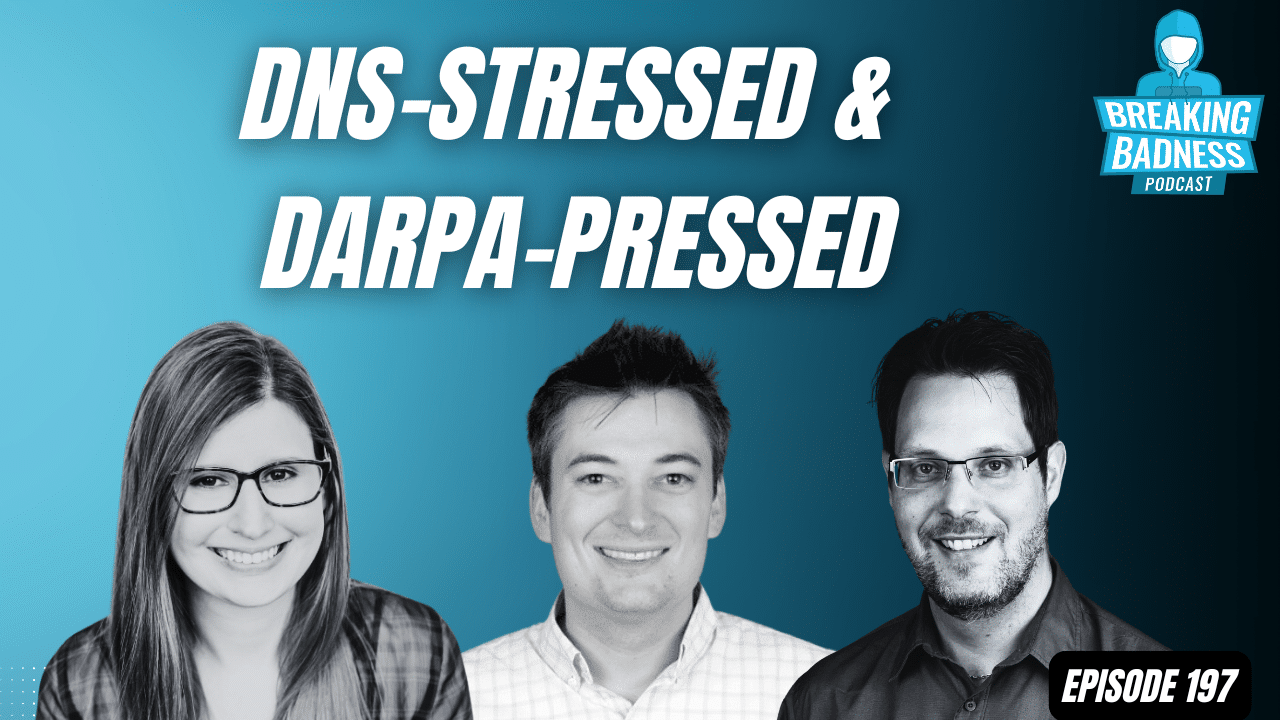Rogue Hackers and the Internet Archive Breach: 31 Million Accounts Exposed!
In this episode of Breaking Badness, Kali, Tim, and Taylor discuss two major stories shaking up the cybersecurity world. First, a researcher has discovered how attackers are exploiting Whois data to grant themselves unprecedented superpowers in the digital space. Second, the Internet Archive suffers a breach possibly exposing 31 million accounts, raising questions about the security of trusted online platforms. Join the team as they break down these complex stories, share lessons learned, and explore how organizations can better protect themselves in similar situations.
Whois the Real Boss? Researcher Discovers Whois Exploit
The episode begins with a detailed discussion of a research discovery related to Whois, the publicly accessible database that holds registration information about domain names. A researcher, Benjamin Harries uncovered a troubling vulnerability in this system, which could give malicious actors an alarming level of control over domain-related activities.
What Happened?
Whois is a system used to look up the ownership and registration details of domain names. While it serves an essential purpose in keeping the internet transparent, the researcher discovered that attackers could manipulate this system to gain “superpowers.” These superpowers refer to the ability to exploit Whois data to their advantage, potentially allowing them to hijack domains, conduct phishing campaigns, or impersonate legitimate entities. The episode discusses how this exploit could be weaponized, giving attackers access to more control than they should have. Although there isn’t any immediate evidence that this vulnerability has been actively exploited on a large scale, the discovery highlights a significant risk in domain security that must be addressed.
Lessons Learned
- Audit Your Domain Information Regularly: Domain owners should consistently check their Whois information to ensure it hasn’t been tampered with. Monitoring these records can help catch any unauthorized changes before they become a serious issue.
- Collaborate with Domain Authorities: Organizations that manage domains must work closely with domain registrars and ICANN to secure the Whois system and prevent vulnerabilities from being exploited.
- Proactive Measures to Secure Whois: As the system is inherently public, a balance must be found between transparency and security. Companies should advocate for more secure practices in managing domain data.
Resource: We Spent $20 To Achieve RCE And Accidentally Became The Admins Of .MOBI
Arch Nemesis of the Archives: The Internet Archive Breach
The second story dives into the breach of the Internet Archive, one of the largest and most trusted open-access repositories on the web. The breach exposed the personal data of 31 million users, sending a wave of concern through the cybersecurity community.
What Happened?
The Internet Archive, a valuable resource for preserving the web’s history, fell victim to a data breach. Attackers accessed a massive database of user accounts, compromising sensitive information. While the exact details of how the breach occurred remain under investigation, early indications suggest that it may have resulted from unpatched vulnerabilities or misconfigurations within their infrastructure.
The breach exposed personal information such as usernames, emails, and other data, raising concerns about how the Internet Archive handles and secures its vast troves of information. Despite being a nonprofit organization focused on maintaining the internet’s historical record, this incident demonstrates that no platform is immune to cyberattacks.
Lessons Learned
- Patch Management is Critical: The Internet Archive’s breach serves as a reminder that even well-respected organizations must stay vigilant in applying security patches and updates. Unpatched vulnerabilities are a common entry point for attackers.
- User Data Needs Better Protection: In today’s world, where data breaches have become increasingly common, even non-profit organizations must prioritize the security of user data. Ensuring encryption and secure storage of sensitive information is vital.
- Open-Access Platforms Aren’t Immune: The breach illustrates that attackers will target even the most trusted, open-access platforms. Security must be a priority across all types of organizations, regardless of their size or mission.
The Role of Clout in Cybercrime
The team reflects on a common theme in both stories: the role of clout and recognition in the motivations behind cyberattacks. Kali mentions that she doesn’t understand why criminals—cyber or otherwise—often seek attention for their activities. Taylor explains that, historically, some attackers have hacked systems just for the “lolz” or for the sake of showing off their skills.
Why Hackers Seek Publicity
In the world of cybercrime, gaining notoriety can be just as important as the breach itself. For some attackers, especially those targeting public figures or organizations, the fame that comes with a high-profile attack adds to their reputation within the hacking community. The team notes that even though not all hackers are motivated by money, the desire for clout can lead to unpredictable and more dangerous attacks.
“There are, as long as there has been hacking, categories of hacking just for lolz or bragging rights. That could be part of the motivation here.”
Lessons Learned
- Expect Unpredictable Behavior from Clout-Driven Hackers: When hackers are motivated by fame rather than financial gain, their behavior can be erratic and difficult to predict, making it harder for security teams to anticipate the next move.
- Monitoring Hacker Communities is Crucial: Security teams should pay attention to underground forums and other online communities where hackers may claim responsibility for breaches, as these claims can provide insights into future attacks.
This episode of Breaking Badness offers some great insights into two significant cybersecurity stories: the discovery of a Whois exploit that could grant attackers dangerous capabilities, and the massive breach of the Internet Archive. Both stories highlight the importance of vigilance in cybersecurity, whether it’s ensuring domain data security or patching vulnerabilities to protect user data. As Kali, Tim, and Taylor discuss, the evolving threat landscape demands that organizations stay proactive and prepared.
That’s about all we have for this week, you can find us on Mastodon and Twitter/X @domaintools, all of the articles mentioned in our podcast will always be included on our podcast recap. Catch us Wednesdays at 9 AM Pacific time when we publish our next podcast and blog.
*A special thanks to John Roderick for our incredible podcast music!




